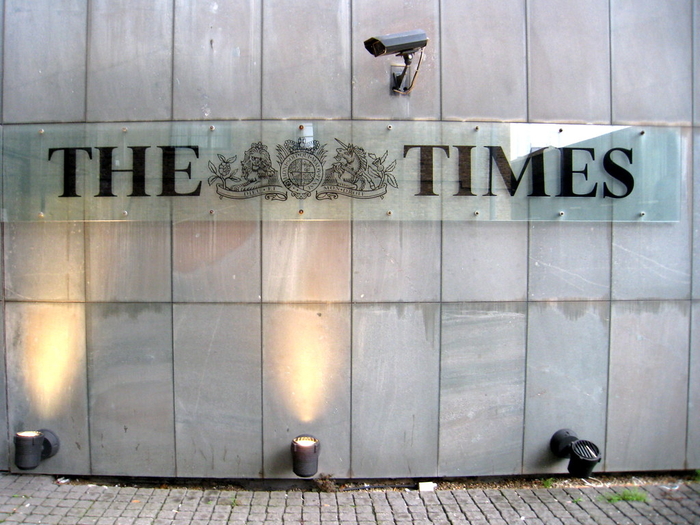An editorial in The Times (“The Times view on Archbishop Desmond Tutu: South African Saint”, Dec. 27) included the following:
Tutu’s courage was manifest not only in taking on the formidable powers of the apartheid state; he also adopted causes he believed were right if neither popular nor expedient. He campaigned early on for gay rights, ensuring that South Africa, almost alone on the continent, has enacted civil partnerships and same-sex marriage. He regretted the refusal of a visa for the Dalai Lama to G his 80th birthday celebrations, accusing the government of bowing to Chinese pressure. And he was a harsh and frequent critic of apartheid-style discrimination against Palestinians in Israel.
Though Tutu did display political courage throughout much of his life, there’s also no doubt that, when it came to Jews and antisemitism, he had a huge moral blind spot.
“People are scared in [the United States], to say wrong is wrong because the Jewish lobby is powerful—very powerful” – Desmond Tutu, The Guardian, April 28, 2002
But, leaving Tutu’s views aside, we contacted editors at The Times to ask for a clarification regarding whether they were merely characterising Tutu’s views, or, as it appears by the wording, endorsing – in their own editorial voice – the baseless smear that Israel practices apartheid. Further, note that the putative victims of Israeli apartheid are described as “Palestinians in Israel”, suggesting, perhaps, that they’re not merely referring to West Bank Palestinians, but Arab citizens of Israel – an even more unhinged allegation, one refuted by the human rights organisation Freedom House.
Though the apartheid charge – which dates back to Soviet propaganda campaigns – has been definitively refuted, it’s instructive to read the response by the CST’s Dave Rich, author of The Left’s Jewish Problem, when we asked him (in a 2016 interview about his book) a question concerning the ideological roots of the libel:
CAMERA UK: In your chapter “From Anti-Apartheid to Anti-Zionism” you cite the influence of PLO and Soviet propaganda on those – in the 60s and 70s – within the radical/revolutionary New Left (particularly from the Young Liberals) who advanced the Israeli Apartheid charge. What political or ideological influences, in your view, promote this charge today?
Dave Rich: Firstly, those old influences are still visible, whether the people parroting old Soviet lines about Zionism, Israel and Jewish peoplehood are aware of it or not. In fact it is remarkable how much anti-Israel discourse today mimics the old Soviet anti-Zionist playbook. Beyond that, though, many people who take an interest in the Israel/Palestine issue are guided by mainstream human rights values and see it as an issue of inequality and denial of fundamental rights – and the ‘apartheid’ charge has obvious appeal within this framework. Then there is the question of racism, which is seen by much of the left as an issue of colour, whereby racism can only travel in one direction: from whites to non-whites. In this view, Jews and Israel are seen as white (and wealthy, and powerful) while Palestinians are seen as people of colour and victims of western hegemony. In the UK, left-wing understandings of racism are intimately connected to the legacy of colonialism (in contrast to the US, where theories of contemporary racism draw on the legacy of slavery), so anti-racism, anti-colonialism, anti-apartheid and anti-Zionism can be packaged together as part of the same political outlook.
Bear in mind, in all this, that most university undergraduates, for example, were not born when apartheid ended and have no memory of the detail of what it actually was and how it actually operated.
Also, see dovish Israeli writer Yossi Klein Halevi on the relationship between antisemitism and libels such as the apartheid charge:
Finally, to read a detailed analysis of the ‘Israeli apartheid’ canard in the context of international law, we strongly suggest reading this, by Barrister Joshua Kern and NGO Monitor Legal Advisor Anne Herzberg.
It’s sad that, of all British publications, The Times seems to have succumb to such Guardian-level anti-Israel agitprop, and we suggest that you consider politely but firmly complaining to editors at this email: timesfeedback-sm@thetimes.co.uk.
Related Posts
The Times repeats Justin Welby’s falsehoods about Israeli Christians





